IIM Lucknow will argue FOR the motion.
IIM Trichy will argue AGAINST the motion.
The opening arguments of both teams are presented below. You can also read them here and here. This is a Live Debate and the debate will continue in the comments section of this article. The audience is also encouraged to participate in the debate. This debate will be live until 12:00 noon on Sunday 7th September 2014.
IIM Lucknow - Arguing FOR the Motion
The Tablet Has No Future
20 hours ago:
Reshal comes running to Swati’s room where a couple of them are busy preparing their marketing project which is due for submission soon.
Reshal: Dude! The topic for the InsideIIM debate has been released.
Swati (excited): Really? What is it?
Reshal: Tablet computers have no future.
Umang: You have to argue for the motion I hope?
Reshal: Yes! Why?
Umang: Because that’s what makes sense; that is what the future is going to be, tablet computers don’t have a future.
Reshal: But, Tablet computers’ sales have been continuously increasing, they are the in-thing!
Swati: Well, Reshal, let me ask you something. If today your laptop breaks, would you borrow Manish’s tablet for a week and be okay with it?
Reshal: Of course not! What use will the tablet be for me? At best I can reply to e-mails or watch a movie on it. My phone is also capable to doing that. It won’t be much of value ads.
Umang: Technically, you can also access and edit documents on it.
Reshal( laughs): Are you kidding me? It would crawl on the 10mb excel file that I am currently working on. I would much rather go to the computer center and get my work done till my laptop gets repaired.
We wanted to see what the others think about the same. You can see their views here: Responses
When Apple launched its first iPad, it was hailed as the post-PC era of consumer electronics. While laptops were able to replace desktops to a large extent, tablets have not been able to do the same to laptops and are unlikely to be able to do that in future either. Tablets are majorly used by people for entertainment- to watch movie, play games or for some light work like checking and replying to mails, reading documents/books etc.
That, however is not the major use of computers. Tablets are restricted in terms of their processing power as compared to computers. With a smaller screen size and a touch keyboard, they are not very conducive to working either. Imagine yourself- when you have to type a 2 page document, would you not prefer doing it on your laptop, where, with regular use you won’t even have to glance at the keyboard to type comfortably at a much better speed? The convenience of a physical keyboard cannot be refuted. While some might argue that one could always carry a portable keyboard, this simply defeats the whole idea of carrying a tablet. One might as well carry their laptop along. There are a plethora of sleek small laptops available in the market which would provide every feature provided by a tablet and more.
Again tablet supporters might argue that the touch screen experience of the tablet makes it better but then there are a several touch screen laptops available in the market.
Tablets are fundamentally about consumption of media. The UI, form factor, and apps for tablets are primarily focused on that. (Think, how many novels/Photoshop/sketches/designs/blog posts, etc. have been created on a tablet in the past year?)
Laptops, and every device with a built-in keyboard, have more potential and flexibility for creation of content.
Having said that, am I implying that the laptops that are currently available are the future of computing? Of course not!
We are merely saying that the likes of tablets and phablets are going to be replaced by technologies like “Google Glass”. It operates on voice commands, so you don’t need to touch the hardware much. It will show you text messages as well as emails you receive and allow you to reply to them via voice commands. It can record videos, click pictures, post them on social media sites, and do most of the work that a tablet would do. Similarly, the smart watches, one of which was launched as a part of the Samsung galaxy gear-which works on gestures is a step in this direction.
Mobile computing—the cell phone in your pocket or the tablet in your purse—has been a great bridging technology, connecting the familiar past to a formative future. But mobile is not the destination. In many ways mobile devices belong more to the dying PC model than to the real future of computing.
More than these, the Sixth-sense technology that became the talk to the town with Pranav Mistry bringing the idea to the fore is essentially what the future would look like. All the advantage of portability and ease that is typically associated with a tablet is being taken a step ahead with Sixth sense technology that allows you to work on a computer just by the help of a pendant which has a camera and a light source. It would work on hand gestures and would give the user the convenience of having his computer complete with a keyboard anywhere and everywhere.
Hard to believe?
Watch this: Pranav Mistry The thrilling potential of SixthSense technology
A similar concept is the projector pen which would give you a screen and a keyboard on the go. One would not even have to worry about the lack of storage space as in the case of a tablet because the technology links it to a watch which has a holographic storage unit with storage of a TB and transfers data between the pen and the watch via Bluetooth. While cloud storage was seen to be the solution to the storage limit on tablets and phablets, the safety and security of data on cloud storage is debatable. We have very recently seen a celebrity picture leak scandal due to the hacking of icloud. That makes physical storage a much safer and option till we discover fool proof ways of securing our cloud data.
A demo of the pen concept can be seen here:Pen Computer
The laser keyboard is already a reality and is available in the market at about Rs, 10,000.
It’s just a matter of time before another technology revolution shakes the foundation on which tablets and phablets are based on and ushers in an era of practically hardware-free computing with the hardware required being as small as a chip or a pen. That is what the future is, not the tablet computers.
- Swati Thakur and Reshal Jain
IIM Trichy - Arguing AGAINST the Motion
Tablets are Devices of the Future
Hitchhiker’s guide to the galaxy
Ford handed the book to Arthur.
“What is it?” asked Arthur.
“The Hitchhiker’s Guide to the Galaxy. It’s a sort of electronic book. It tells you everything you need to know about anything. That’s its job.”
Arthur turned it over nervously in his hands.
“I like the cover,” he said. “Don’t Panic. It’s the first helpful or intelligible thing anybody’s said to me all day.”
“I’ll show you how it works,” said Ford. He snatched it from Arthur who was still holding it as if it was a two-week-dead lark and pulled it out of its cover.
“You press this button here you see and the screen lights up giving you the index.”
A screen, about three inches by four, lit up and characters began to flicker across the surface.
The following are excerpts from the book: A hitchhiker’s guide to the galaxy, written by Douglas Adams
Douglas Adams in 1968, envisioned a device in his books, what we refer today as the tablet. The tablet was often considered as a ‘device of the future’, with writers fantasizing about humans in the future decked in their spacesuits penning notes on hand-held devices and talking with each other through them.
A move towards technological convergence
Well, the world hasn’t diverted a lot from these ideas, but what we see today is something people refer to as ‘Technological convergence’. We can never say what device is at the end of its life cycle, simply because, through this process of convergence, they take the form of something new and suddenly, they are at the beginning of their life cycles all over again. With smartphones becoming phablets and tablets merging with keypads and smart devices to form laptops, can we really say which device is being replaced by what?
The era of tablets is not on a decline, but is just on the rise, we say. This is primarily owing to this phenomenon of convergence, wherein devices with different utilities are merging into one. The tablet, with its compact size stands to gain the most because it is large enough to display HD images and videos to ensure a multimedia experience and it is small enough to be portable, giving it the mobility it requires. A tablet is neither a PC nor a smartphone but it sure does serve the unmet demand created because of the (technological) gap between these two devices. Firms are creating tablets that are compatible with other devices of their own. Eg: The Apple smartphone, tablet, TV, etc. are all synced together to create an ecosystem of their own where people use these devices interchangeably with a remarkable ease.
Now what do the numbers say? The world-wide tablet sales to end users increased by 68% during 2013, according to a report by Gartner. In the emerging markets the tablets (sales) grew at a rate of 145% while in developed markets they grew at 31%. Android emerged as the market leader with 61.9% share in 2013. What’s the cause for this sudden increase? The ubiquitous lower end tablets that are affordable to everyone.
Source: Canalys, November 2013
A new wave of demand in its infancy
People might argue that the target audience for tablets is limited, that only business executives favour this device when they travel, in order to read. But when we see our next generation, our daughters and nephews and nieces playing games on these very devices and their parents reading them stories that take life through the bright lights and moving images emanated through these very technological marvels, does it still warrant us to talk about a saturation in the market for tablets? With price ranges spreading across spectrums, the uses of these devices is rapidly increasing. Here are some of the few we observed:
1) In restaurants, flights, hotels for taking orders
2) Courier service for taking up digital signatures
3) In showrooms to promote paper-free catalogs
4) In schools (smart schools) as a tool for interactive learning
5) As a device for young children to play and learn
6) A remote control for devices at home
7) In the field of art, digital music, digital art, a mobile way to mix sound
Source: Hospitalitysolutions
Source: Tabletremote
Source: Blogcdn
And none of these conform to the traditional view of tablet usage, i.e. reading. Facts and figures (although still showing growth) do not incorporate latent demands, which might result in the tablet being increasingly used as ‘The Home device’; the device for the entire family, increasing the estimated growth rates for the future. With technologies like Retina Display, Intel’s 14 nm technology for fanless tablets, WiGig enabled technology, technology which incorporates an audio digital signalling processor into a die reducing the load on the battery and many more such technological breakthroughs focused primarily on tablets, there is clear indication that these devices are here to stay.
The dual-market phenomenon
Bigwigs like Lenovo and Microsoft are reportedly ramping up their R&D capacities by opening up new centres in Asia. Low-cost manufacturing seems to be the new buzz-word in an industry marked with a higher demand concentrated over the low-priced segment in recent times. At the same time, companies are focusing on differentiating their products for the other segment which focuses solely on product attributes and brand value. There is clearly emerging a chasm between budget tablets and the ones which are high on innovation and firms are thus adopting this two-pronged strategy of creating products keeping the needs of these two consumers in mind. Tablet sales aren’t reducing, it is just that two separate customer segments (based on their needs), are creating two huge markets in the process: One which has the potential to make the tablet as ubiquitous as a mobile phone and the other which can make it as ‘high involvement’ as a luxury watch.
With the launch of the Surface Pro 3, the lines between the laptop and the tablet are being erased. So, what do we say here? Is the laptop replacing the tablet or the tablet replacing the laptop? Either ways, none of them are nowhere close to being out of the race. This can be demonstrated by observing the R&D spends of the leaders in this field. In 2013, tech giants Google, Microsoft and Apple invested more than five times the amount spent by five of the largest US defence firms on R&D (US Defence reports). The combined figure was more than $18 billion! When we include the leader in these spends: Samsung, these numbers reach more than $30 billion. We are not quoting these figures to indicate spends on R&D for tablets, but to stress on the fact that these companies are spending so much on research which ultimately focuses on the phenomenon of ‘technological convergence’: Phones becoming tablets, watches becoming phones and laptops becoming televisions, thus in a way extending the growth phase of tablets.
Tablets and advertising
Tablets present more engaging and innovative opportunities for advertising. Firstly, they provide a greater space for the adverts than do smart phones. Firms are rapidly creating advertising content specifically for tablets. Eg: The media and entertainment industry has a unique opportunity to promote their creative content on tablets. A study by the Association of Magazine Media showed that Tablet media results in higher brand awareness for the advertiser than mobile campaigns.
Starch Advertising Research found that high-end tablet readers were young and well-off; almost half of them being in the age group of 18-34 and having incomes of $75,000 or above. This presents a niche targeting opportunity for a number of luxury brands. Marketers are making the most of this phenomenon by creating (tablet) applications for their brands. The tablet apps are also being used for advertising where the user can switch from one app to another through the ads. To further corroborate this fact, a study conducted by the Internet Advertising Bureau (IAB) showed that digital ad spends on tablet devices have increased by 400% in 2013 compared to the year before.
Leading brands are also increasingly creating campaigns targeted at tablets. Axe created a graphic novel, specifically for iPads, which achieved a click through rate which was 30% higher than the benchmark. IBM too teamed up with Ogilvy to create a “Smarter Cities” iAd where iPad users could just tilt the device to graphically ‘fly over’ cities to learn what makes them unique and the problems they face. This is an excellent example of how an advertisement took advantage of the landscape of the tablet to create rich animated content.
The IBM campaign (Source: Business Insider)
The Axe campaign (Source: Business Insider)
In short, tablets are a win-win situation for both the consumers and marketers as they provide an enhancing experience which improves the interaction between them both.
Newspapers going digital, the phenomenon of ‘tablet news’
Publications have gone mobile. Rather, they have gone ‘tablet’. This is seen in the huge number of tablet applications for leading publishing houses. A report by MPA (Fact Book 2013-14) showed that the US tablet users spend 75% of their ‘engagement time’ reading magazines on their tablet applications. This usage can be attributed to the fact that the tablet is portable and provides a much bigger screen size compared to smartphones. Forward thinking publishers such as The Newyorker and The Economist developed their digital versions long ago. By offering videos and photos, digital magazines are able to increase consumer engagement and the tablet is proving to be just the right platform for the same. The average ‘tap’ or ‘interaction rate’ for tablet adverts is 0.8%, according to a report by the Marketing Bureau of UK newspapers. This shows that tablet adverts are 40 times more effective than web ads.
The phablet as a positive
The hybrid of a smartphone and a tablet: The phablet, is the new kid on the block, with a screen size between 5.5 and 6.99 inches. Their shipments are projected to increase to 175 million in 2014, according to International Data Corp (IDC) and are projected to capture more than 32% of the smartphone market by 2018.
Isn’t the phablet just another version of a tablet? There can be a whole continuum of products in between a laptop and smartphone with variations in screen sizes and weights. Aren’t they more or less the same product? This phenomenon is just another indicator that the demand for tablets is on the rise. When users are preferring to buy larger and larger smartphones, isn’t this a step towards a move towards tablets? This is what we ask.
The consumer angle indicates a huge wave of demand that is yet to hit the tablet market, courtesy of it being adopted by the quintessential ‘family’. The business side shows optimism by virtue of revenue opportunities (advertisements and subscriptions) that smartphones don’t offer. Combining these two together just proves how our estimate of the growth rate for tablets has been more on the conservative side. New-age tablets taking various forms will shape the future of technology, influencing how we use our products. Individuals and families across the world will incorporate this device in their daily routines, in ways that we have yet to discover. We all know how Xerox invented the personal computer and then totally forgot about it (due to a perceived lack of demand). The tablet is far from maturity, it is on the cusp of a new wave in demand. The sooner firms realize this, the better it is for them.
Bhanu Putumbaka and Venkat Iyer









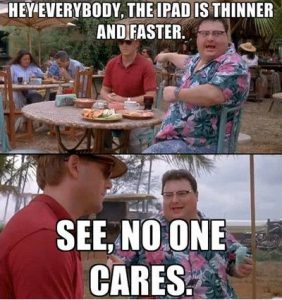


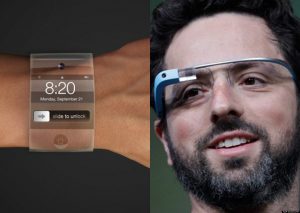



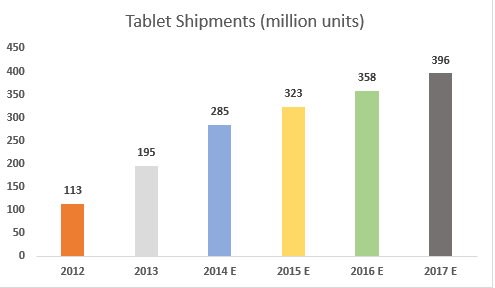

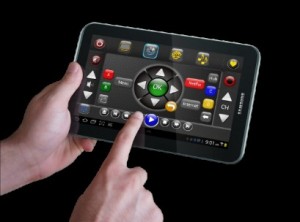
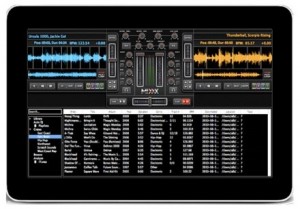


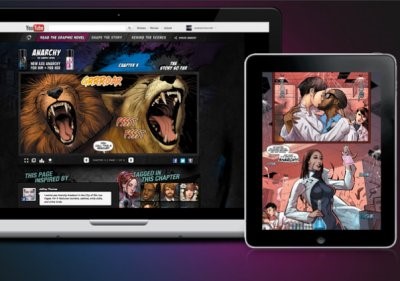










Comments
venkat iyer
“While laptops were able to replace desktops to a large extent, tablets have not been able to do the same to laptops and are unlikely to be able to do that in future either” Replacing laptops cannot be the criteria to gauge the success of a device. Tablets are, as we pointed out, devices that fill the void that is created between the desktops and laptops. The functional benefits that tablets provide are way different from what desktops or laptops do. How is it then fair to compare the success of a tablet based on whether or not it was able to replace something it was never intended to? “Tablets are majorly used by people for entertainment- to watch movie, play games or for some light work like checking and replying to mails, reading documents/books etc.” Studies conducted by Kantarmedia point to the fact that over 51% of doctors (USA) use a tablet for professional purposes that include medically oriented webcasts, subscribing and reading medical publications, conduct general research and stay updated with the current trends. 'Saying that tablets are just for’ consumption of media’ might offend the Tablets for Schools organization which conducts research on the impact of tablets on learning and attainment. There are many educational applications on the tablet that can aid children in learning. As the cost for tablet computers has been decreasing, schools prefer to purchase tablets over computers for their students (Read: The Aakash tablet). Across the world, Schools are increasingly being equipped with tablets for a ‘smarter learning experience’. In September last year, in Los Angeles, the government budgeted $50 million to equip more than 30,000 students in 47 schools (Right from kindergarten to 12th Grade) with iPads. All these tablets were pre-installed with Pearson Software to assist in learning. This is just one of the examples where the tablet is being used to assist children in their learning. Can we still say that tablets are ‘just’ used for entertainment? After all, if we remove the calling feature, what are smartphones used for? We’re pretty sure that just ‘selfies’ would create a double digit usage statistic. Also, even assuming that tablets are majorly used for entertainment, can we say that this is a negative sign? With majority of the media going predominantly online, how is it a negative if tablets are the preferred choice for entertainment enthusiasts?
6 Sep 2014, 10.37 PM
+Read Replies (2)
Swati Thakur
The functional benefits, as you mentioned are very restricted. Reiterating our point from the entry, tablets’ functional benefits are still restricted because they don’t offer the ease of work that a laptop does. The reason that it is compared to something like a laptop, which is a full blown computer, is because in future, the portability aspect of the tablet will be under threat from other devices mentioned, and functionality is what they will have to compete on! Won’t you prefer carrying just a pen (watch video from entry) which can act as a computer ANYWHERE, than a tablet? As far as laser a keyboard being an added functionality to tablets is concerned, well, they are not. Despite their presence in the market, they haven’t really taken of as supplements to tablets because people might not like to spend an additional 10k to get “supporting” gear for their tablet
7 Sep 2014, 03.42 AM |
venkat iyer
"Tablets’ functional benefits are still restricted because they don’t offer the ease of work that a laptop does" The 'right size' is the important parameter we need to talk about here. When, in the same statement you talk about 'pens' being more easy to carry and 'laptops' being more easy to use, you are talking about two separate needs that create two separate segments of usage. The tablet is something which has the power of a laptop but is as portable as a pen. With further innovations, it will only get more compact and powerful. When you are talking about innovations that are have not even proven themselves, isn't it easier to talk about innovations in tablet themselves that might iron out all their flaws?
7 Sep 2014, 10.06 AM |
venkat iyer
“We are merely saying that the likes of tablets and phablets are going to be replaced by technologies like “Google Glass”” Our opponents are clearly into futuristic technologies. They sincerely believe that something that has not yet even proven its worth shall replace every product in the ‘near future’. How can someone edit a 2 MB file (that is apparently a pain to edit with a tablet) using Google glass or a smart watch? When even Siri and Cortana are not equipped yet to handle voice commands properly, how can we assume that something so far-fetched as the ‘Google Glass’ (using voice commands) can so quickly wipe out something as ‘real’ as the tablet? Well, we never know how the world will look like in the decades to come. When we try to look into the ‘future’, it is always just for the next 10-15 years. It’s difficult to predict beyond that. How long will it take for the sixth sense technology to be universally adopted? For that to happen, the technology should develop in such a way as to reduce the costs and make it affordable to everyone. What are the odds of it happening in the near future? The possibilities range from none to absolutely zilch. For starters, Pranav Mistry introduced the concept of ‘Sixth sense’ in 2009.So far, there hasn’t yet been a viable business undertaking this technology because it takes time for technology to progress. It is hard to believe that the aforementioned technologies will completely replace tablets in the near future. “It would work on hand gestures and would give the user the convenience of having his computer complete with a keyboard anywhere and everywhere.” Assuming that this technology works in the future, how will this be a hindrance to tablets? This will rather act as an accessory to a tablet (with an air keyboard). Storage spaces are undergoing revolutionary change. While the cloud is definitely the future (Security issues exist on every physical device), storage on tablets are also set to reach newer heights. When a pen can handle terabytes of data, how difficult is it for a tablet? And how is the projector pen a reason for the tablet losing its market share? Are we saying that people would replace tablets with these pens and watches in the future? On one hand our opponents talk about difficulty in handling a 2 MB file and on the other hand the talk about pens and watches replacing tablets. What, we ask, is the actual purpose of the device here? If it is entertainment, the tablet seems to be doing a fair enough job (as per your words too). Also, these devices would be complements, not substitutes to the present scenario. If it is for work, the technological changes in processor speeds (Read our mention of the new Intel processor for tablets) will definitely make the task much easier. Also, with detachable keyboards (and your futuristic keyboards in the air), tablets will only become much easier to use.
6 Sep 2014, 11.29 PM
+Read Replies (4)
Reshal Jain
When we say that the likes of tablets and phablets will be replaced by the advanced technologies like Google Glass, we are talking about technological advancement. Document editing is something that which only a laptop or a computer can do efficiently. We do not say that Google Glass is capable of doing that, it’s just that it is more convenient to use as compared to the tablet for other functionalities. It will not be entirely correct to say that Google Glass is a far-fetched thing. It has already been released in market for testing and is also available to public. (You can buy it from amazon.com) When we mention sixth sense technology we do not imply that it will wipe off the tablets immediately. All we aim is to point out that technology is changing fast and there will always be new better products being developed which will eventually take over the market. Initially the technology developed is always expensive and with time and continuous R&D, the technology becomes cost-effective. (Initially, a computer or a laptop or a tablet or a mobile phone for that matter were all very expensive). An air keyboard will not be a hindrance to tablet but will increase the cost of using a tablet. The cost effectiveness of tablet then goes down the drain
7 Sep 2014, 04.31 AM |
venkat iyer
‘When we mention sixth sense technology we do not imply that it will wipe off the tablets immediately. All we aim is to point out that technology is changing fast and there will always be new better products being developed which will eventually take over the market.’ These words are vague. This ‘eventuality’ applies to any high technology product. We mentioned in our article (read technology convergence) about the evolution of products that offer a common platform to access your data. How can you use a 'technological development' which is not even directly competing with the tablet to 'just' wipe out tablets in the future? Also, in such a scenario, are you not assuming that there shall be no innovation in tablets to counter any such developments?
7 Sep 2014, 10.14 AM |
venkat iyer
"Document editing is something that which only a laptop or a computer can do efficiently. We do not say that Google Glass is capable of doing that, it’s just that it is more convenient to use as compared to the tablet for other functionalities" On one hand, our opponents assume here that a tablet will not achieve the desired innovation to edit a document in the future but a Google Glass will achieve the necessary features to replace the tablet in whatever it does now. On what basis have you assumed this? We are talking about a scenario where companies are pumping in billions for innovation into 'tablets' (Read: Microsoft spending more than $1.5 bn for the Surface 3 R&D). How then can you assume that a tablet cannot get these functionality of working efficiently (we can as of now itself work well on a document) on documents in the future?
7 Sep 2014, 10.38 AM |
venkat iyer
"Initially the technology developed is always expensive and with time and continuous R&D, the technology becomes cost-effective. (Initially, a computer or a laptop or a tablet or a mobile phone for that matter were all very expensive). An air keyboard will not be a hindrance to tablet but will increase the cost of using a tablet. The cost effectiveness of tablet then goes down the drain" There are two contradictory statements used in a single line here. When you talk about technology becoming cheaper, isn't it unfair to assume that these very 'air keyboards' will keep their prices high? Also, the main point here is that these 'accessories' are not a necessity. When we talked about the 'dual market phenomenon', we clearly mentioned how tablets are being segregated into two segments: The affordable and the luxury. Those who can afford high-end tablets would surely use these accessories to enhance their tablet experience. While for the budget users, there is no need of such an accessory (There exist physical keyboards already, just to point out) while they will surely develop from innovations on the cost side which further reduces the price at which they buy this device.
7 Sep 2014, 10.51 AM |
Swati Thakur
When our worthy friends from IIM Trichy say that tablets merge with smart devices to form laptops, we get slightly worried and feel the need to inform them that while the first laptop came in the year early 1980s, the very first tablet made an appearance only about 2 decades later. Also, our friends say that there is technological convergence which is blurring lines between all forms-smartphones, tablets and laptops and hence they have a future. Well, if you bucket all major forms of computing technology as one, obviously they do have a future. Technology is not going to disappear or fade away, it is going to evolve. As far as the tablets bridging the gap is concerned because they are ‘portable’, so is a macbook or any of the small, sleek, light-weight laptops available today.
7 Sep 2014, 03.20 AM
+Read Replies (2)
venkat iyer
‘Initially the technology developed is always expensive and with time and continuous R&D, the technology becomes cost-effective. (Initially, a computer or a laptop or a tablet or a mobile phone for that matter were all very expensive).’ Exactly our point. The same applies to the laser pen and the air key board. They will be affordable enough to become a ‘supplementary’ gear. At the same time, tablets will even get cheaper and more affordable to use and such accessories shall make their usage even more easier for the consumer.
7 Sep 2014, 10.21 AM |
venkat iyer
"When our worthy friends from IIM Trichy say that tablets merge with smart devices to form laptops, we get slightly worried and feel the need to inform them that while the first laptop came in the year early 1980s, the very first tablet made an appearance only about 2 decades later" Again, this point serves to our benefit here. The fact that tablets are a much younger technology when compared to laptops proves the point that there is much more innovation in tablets that is yet to be seen. How can we talk about a device in its infancy to be 'wiped out', when there is still to be seen a lot of technological changes in this device? Think how the laptop changed from a bulky box to something like a Macbook Air now. Why aren't our opponents giving the 'tablet' the very same opportunity to improve and better its current form? "Also, our friends say that there is technological convergence which is blurring lines between all forms-smartphones, tablets and laptops and hence they have a future. Well, if you bucket all major forms of computing technology as one, obviously they do have a future" We are not 'bucketing' anything here. Using empirical data, we have showed how, over the past there exists a pattern of convergence among various devices. Laptops getting detachable keyboards and becoming tablets, phones growing larger screens and becoming tablets (Phablets as they call it),etc. How is it the growth of 'technology as a whole?' It is the growth of a targeted few devices, out of which the tablet is an important one. Also, there seems to be a 'misunderstanding' of the term 'technological convergence' from your side. Apart from devices getting closer to the other, it also talks about 'an ecosystem' where different devices can be used interchangeably. Eg: The iPad can act as a remote for the iTV which can share the screen from a Macbook, which in turn would be using the iPod to play songs. This marvel of the confluence of these devices to create an environment where all devices are part of a system, having equally important roles in it, is what we were talking about. How is it then that the future of a tablet is dwindling? These 'systems' will power the growth of these few segments in technology.
7 Sep 2014, 10.34 AM |
Reshal Jain
As far as its use it in smart schools is concerned, we would like to quote the technology director of a school in L.A which had earlier implemented ipads for interactive learning and later replaced them with laptops, “While nobody hated the iPad, by any means, the iPad was edged out by some key feedback. Students saw the iPad as a “fun” gaming environment, while the Chromebook was perceived as a place to “get to work.” And as much as students liked to annotate and read on the iPad, the Chromebook's keyboard was a greater perk — especially since the new Common Core online testing will require a keyboard.”
7 Sep 2014, 03.52 AM
+Read Replies (1)
venkat iyer
“While nobody hated the iPad, by any means, the iPad was edged out by some key feedback. Students saw the iPad as a “fun” gaming environment, while the Chromebook was perceived as a place to “get to work.” And as much as students liked to annotate and read on the iPad, the Chromebook’s keyboard was a greater perk — especially since the new Common Core online testing will require a keyboard.” For tablets to become part of the learning environment, the children should be taught to use it positively. If they think that iPad is “fun”, not sure where the blame lies. Our point here when we used this example was that tablets are a much easier device to spread among children, for effective and easy dissemination of information. Laptops, on the other hand are more expensive and bulky devices that are not feasible for the same. Imagine so many cases in India where the Aakash tablet might create a difference. The government (especially the new one) has already talked about using tablets in many schools as part of its 'smart cities' initiative. The same children who can misuse a tablet, can also misuse a laptop. Let's not forget that. There are so many children who have benefited from using these tablets in so many other schools. That was our point here. And there are so many places, so many schools, where this device can create a huge impact.
7 Sep 2014, 10.11 AM |
umang K
IIM L seems to have got a slight disadvantage in terms of the topic cause tablets are the in-thing at the moment. But the videos are a very innovative way to broad-base the perception. Well articulated too! IIM T has also done good research. But Lucknowites appear to have taken this one, folks!
7 Sep 2014, 10.53 AM
Swati Thakur
@Team Trichy- When you say that tablet is as powerful as a laptop and as portable as a a pen, we don't even want to reiterate "again" that there is no comparison between a laptop and a tablet in terms of performance, you simply can't put them at par! That is the whole point where the tablets lose out-they can't deliver satisfactory performance in official work. Please tell me if you use your tablet to make your assignments? Also, if you are into serious gaming, do you really use your tablet for that? No right! About banking on innovation, well, thats what we will have to do when we look at the future-bank on concepts that are in the making.
7 Sep 2014, 11.03 AM
+Read Replies (1)
venkat iyer
We never said that 'tablets and laptops' were at par. Ever. We clearly mentioned, both in our article and in our rebuttals that both served different needs, different segments. How is it that you inferred this from our argument? What we mentioned was that, in the future, with developments in technology for tablets, the limitations of tablets might be erased. That was our point because you had not considered the scope of innovation in tablet manufacturing.
7 Sep 2014, 11.13 AM |
Swati Thakur
When you say that tablets will be innovated to bring in functionality which will, for example, allow them to work on documents, you are forgetting the basic flaw we highlighted-they are very uncomfortable to type, because the touch interface doesn't allow you to type at quick speeds. "Google glass" ALREADY has the functionalities mentioned in our entry, and it is just one example we have taken, there are other products in the piepline. The "accessories" are not a necessity, but for people looking for a faster working experience, they are. And physical keyboards are not an answer-no one would carry around a physical keyboard to connect to their tablet to work.
7 Sep 2014, 11.10 AM
+Read Replies (3)
venkat iyer
"The “accessories” are not a necessity, but for people looking for a faster working experience, they are" Exactly our point. Those people would constitute a segment which could afford any accessory that came with a tablet to make life easier for them.
7 Sep 2014, 11.15 AM |
Swati Thakur
"....Tablet is as powerful as a laptop...", is what we would like to quote from your own argument :)
7 Sep 2014, 11.18 AM |
venkat iyer
Again, that statement was one for the future where technological innovations in tablet technology might even serve to create conditions making it possible for the Tablet to be at par with the laptop.
7 Sep 2014, 11.32 AM |
Swati Thakur
When you talk about the pen shown in the video being a "supplementary" gear, we would urge you to watch the video again to see that it is a system in itself and not any supplementary gear.
7 Sep 2014, 11.12 AM
Swati Thakur
We would like to further point out to our friends that while they put a little too much stress on technological convergence to base their argument, they are essentially saying all technology can be used inchangeably-that is not the case. A laptop and a tablet cannot be used interchangeably-and are unlikely to be able to in future either. So, when our friends use that as their basis and say tablets have a future, they are probably misinterpreting the topic by clubbing the computing devices together and claiming they have a future.
7 Sep 2014, 11.16 AM
+Read Replies (4)
venkat iyer
"So, when our friends use that as their basis and say tablets have a future, they are probably misinterpreting the topic by clubbing the computing devices together and claiming they have a future" Reiterating what we said again, we are not 'clubbing' anything based on our whims and fancies. The existing scenario is the example which we have taken into consideration when we talk about TVs, laptops, iPods and tablets connected together in one whole ecosystem. We talk about a system where all such devices would complement each other, in addition to having a separate role among themselves. We believe that is a more rational estimation of the future than Google Glasses taking over technology.
7 Sep 2014, 11.22 AM |
Swati Thakur
More than us, our worthy friends seem to have taken a fancy to the "Google glass", so, please order one for yourselves :) Jokes apart, all forms of computing devices are part of a larger ecosystem, but what we are debating here is one COMPONENT of that ecosystem, so it would be fair to demarcate it from the others as much as possible, not continue collating it with other components of the ecosystem :)
7 Sep 2014, 11.25 AM |
venkat iyer
When an ecosystem serves to benefit every component that survives within, is it really unfair to not attribute the growth of the system to the growth of the components? What we keep reiterating is that the system shall in itself create a separate demand for the components as a whole, in addition to these components have a separate demand for themselves.
7 Sep 2014, 11.29 AM |
Bhanu Putumbaka
“A laptop and a tablet cannot be used interchangeably-and are unlikely to be able to in future either. So, when our friends use that as their basis and say tablets have a future, they are probably misinterpreting the topic by clubbing the computing devices together and claiming they have a future.” We never said tablet can do everything a laptop can. That has been the argument from the beginning- Tablets are not replacing laptops, they were never meant to. At the same time, there is no denying that tablets are being used in a lot of innovative ways (refer to the list in our article). When we say they can be used interchangeably, all your accounts are synced across your smartphone, tablet and laptop. When you log out of your laptop at work and open your tablet while traveling, you can continue to access all your data.
7 Sep 2014, 11.45 AM |
Swati Thakur
Not everything can be monitored which is why it is the task of the people in power to rely on the best possible alternatives that will minimize misuse. There are multiple studies which show that it is far more effective to monitor students' usage of a laptop than any tablet like an ipad. It is just facts that we are stating here!
7 Sep 2014, 11.22 AM
+Read Replies (1)
venkat iyer
The problem here is the internet and not the tablet. Pre-installed softwares that do not need the use of the internet can also be effectively used in schools. Pearson software was one such example.
7 Sep 2014, 11.27 AM |
umang K
What's with Trichy's comments? I thought it's a debate on whether tablets have a future or not. Complementary devices? Seriously? I like the point on scope of innovation in tablet manufacturing. But then again, isn't tablet itself an innovation out of its good old predecessor laptop?
7 Sep 2014, 11.30 AM
+Read Replies (1)
venkat iyer
"What’s with Trichy’s comments? I thought it’s a debate on whether tablets have a future or not. Complementary devices? Seriously?" Complementary devices are called so because they act as 'complements' to a primary source. Our argument was bordered on the fact that complementary devices (which our opponents pointed out as killers for tablets) would actually complement their sales because they would make the tablets easier to use.
7 Sep 2014, 11.39 AM |
Tripesh Sakhuja
“Isn’t the phablet just another version of a tablet? There can be a whole continuum of products in between a laptop and smartphone with variations in screen sizes and weights. Aren’t they more or less the same product?” - Team IIM T I would like to point out that phablets, phones, laptops and tablets are completely different product lines. I am not sure how has team from IIM T concluded that all these products are just the same products. Had all these been same, we would not be using multiple products to cater to our dynamic requirements. Even tech companies have completely different departments for each and believe that these are just complementary to each other and can never be used as complete substitute to each other. Currently, all of these products are complimenting each other to solve for different requirements. Team from IIM L has a very strong point when they say that technology such as the laser pen is the future and can replace all the above stated products. This would solve all the problems and fill the gaps created by multiple product lines.
7 Sep 2014, 11.32 AM
+Read Replies (4)
venkat iyer
"I would like to point out that phablets, phones, laptops and tablets are completely different product lines. I am not sure how has team from IIM T concluded that all these products are just the same products." We talked about phablets being a byproduct of tablets. That is a very fair assumption given that the definition of a phablet in itself calls itself a hybrid of a smartphone and a tablet. Also, we never said laptops, phones are all the same product line. You have misunderstood this statement. All we talk about is a continuum where different needs of the consumer are served using different devices as a result of which there exist a constant (Or even increasing) demand for these devices. "Team from IIM L has a very strong point when they say that technology such as the laser pen is the future and can replace all the above stated products." A laser pen is in no way well equipped to handle official documents (edit them) or watch videos with privacy (without a projector). When you can place your faith in a device which has not yet proved its credentials, how can you discount any innovation in tablets as a whole?
7 Sep 2014, 11.37 AM |
Swati Thakur
Getting slightly tired down here repeating that Team Trichy needs to watch the video! The pen produces a laser screen and keyboard which allows you to do EVERYTHING and as shown in the Sixth sense video, it would allow you to use something as small as a paper to watch your videos "privately". The gentleman here is not discounting innovation in tablets, he is just stating that the innovation will still leave gaps
7 Sep 2014, 11.42 AM |
venkat iyer
How can you assume that 'the innovation will still not fill gaps" but very clearly assume that '"the laser pen shall cater to all needs". We ask you to treat both cases with the same amount of prudence. When I talked about a laser pen, I was talking about privacy that such a pen cannot provide us with while travelling (which a tablet does). If we get into the finer details, I'm sure we can argue on each and every point where a tablet might be useful and where a pen might be. What we reiterate is that there exists a need which the tablet satisfies and innovation would only further increase the spectrum of needs that these devices (tablets) can cater to.
7 Sep 2014, 11.48 AM |
Tripesh Sakhuja
When the tablet computer was launched, it did not have the features that it now has, it did not have the popularity that it now has, it did not have the utility that it now has. In its nascent stages, any technology does not have all the possible features. You are comparing apples to oranges here. By comparing existing features of a saturated product (tablet) with the existing features of a new product (the laser pens). I am not discounting innovations in tablet, of course the possibilities are endless. However, with all of its innovations, tablets have not shown any promise of emerging as the winner among all the devices.
7 Sep 2014, 11.54 AM |
Shreysi Mehendiratta
studies Econonic honours at Shri Ram College of Commerce
"We talk about a system where all such devices would complement each other, in addition to having a separate role among themselves. We believe that is a more rational estimation of the future than Google Glasses taking over technology." The team from IIM L is nowhere saying that such devices are not co-existing in today's world. But believing that the future will be restricted to these, is almost ridiculous. The pace at which technology is changing, Google Glasses and other such innovations are not far-fetched ideas but a soon to become reality.
7 Sep 2014, 11.38 AM
venkat iyer
"The team from IIM L is nowhere saying that such devices are not co-existing in today’s world. But believing that the future will be restricted to these, is almost ridiculous" We never talked about the future being restricted to these devices. All we talked about was that the 'ecosystem' will ensure, in itself, that there exists an inherent need for tablets to grow. Because this debate was about the era of tablets coming to an end, we used this point to validate our claim that there exist other sources of demand too, in addition to these devices having a demand of their own. We did not discount the technological advances created by Google Glass. All we say is that our assumption that a 'system of convergence' creating more demand for tablets is more rational than 'Google glass replacing tablets soon' because it has already been proved. (See our Apple TV,ipod argument)
7 Sep 2014, 11.44 AM
Swati Thakur
Also, Team Trichy states that physical memory is also prone to data security issues. Well, that security is in the owner's hands. If you lose your laptop, or your HDD, it is your fault. However, cloud storage hacks are well beyond your control so by no means can the two media be equated in terms of data security. On the other hand, a holographic chip fitted in a watch is safe, and convenient
7 Sep 2014, 11.45 AM
+Read Replies (3)
venkat iyer
For that matter, any device can be stolen. That makes tablets as safe as any other revolutionary device of the future. In one statement, you said Chromebooks are more efficient that tablets. We hope you know that Chromebooks rely almost totally on Cloud storage which you yourself have discounted as being 'not secure'. "On the other hand, a holographic chip fitted in a watch is safe, and convenient" I believe our opponents have discounted the possibility of a watch being stolen here. How much would it take for someone to discard the chip and use the watch? Every physical device has its risks.
7 Sep 2014, 11.53 AM |
Swati Thakur
Are you trying to equate you leaking out your password to someone in a conversation by sheer carelessness, to someone hacking your account without your knowledge or fault? You seriously can't argue that icloud being hacked is equal to physical menory devices being stolen! Again, I would urge you not to get stuck on particular examples-we are talking about laptops in general, not chromebooks in particular :D
7 Sep 2014, 11.56 AM |
venkat iyer
"Are you trying to equate you leaking out your password to someone in a conversation by sheer carelessness, to someone hacking your account without your knowledge or fault? You seriously can’t argue that icloud being hacked is equal to physical menory devices being stolen!" Sheer carelessness cannot be the only way one can lose their password. The internet is enough for it. Hackers rely on internet connectivity on devices. Your current laptop has the same probability of getting hacked as your cloud data. All this is assuming that tablets use only 'Cloud storage'. Why are you not considering the development in storage devices that might create physical storage on tablets at par with laptops or even better?
7 Sep 2014, 12.00 PM |
Swati Thakur
@Team Trichy, what we are saying is, that with technology as innovative as the one mentioned, tablets will become redundant! When someone has the sixth sense technology where he can transform just about any surface, of any size, into his playground, why would he additionally need a tablet-even to the privacy point again, it will provide you the privacy too when you use a notebook into your screen (of that size) and use it privately while you travel
7 Sep 2014, 11.52 AM
venkat iyer
"what we are saying is, that with technology as innovative as the one mentioned, tablets will become redundant!" Well, in our previous arguments we have indicated how our opponents rely overtly on 'futuristic assumptions'. Using this argument, we don't need a debate for the following at all because in the future, everything will be replaced by something else. The entire point of the 'future' is a 'perceivable timeline'. Every product and an industry has a life cycle and we are here to argue that tablets are not yet near the end of their life cycles. We are not saying that tablets are a perpetual device, but merely stating that they are nowhere close to their end (using facts and research) as claimed by the other argument.
7 Sep 2014, 11.56 AM
+Read Replies (4)
Swati Thakur
My dear friends, we are debating the future here and would hence have to rely on futuristic technology itself. Agreed we are not talking about next year as future, but we are definitely not talking about 20 years later as the future :P
7 Sep 2014, 11.59 AM |
Tripesh Sakhuja
Sir, the topic of the debate is "The Tablet Computer Has No Future". I don't think people should not focus on futuristic technology. Do you really think that obsolete technology from tester year will make a impact now?
7 Sep 2014, 12.02 PM |
venkat iyer
We would like to ask you, on what basis have you assumed a timeline (among other things) for your products. There is a huge lag between product discovery, development and sales and that is what a product life cycle talks about. Many of the products that our opponents talk about as being 'a replacement' for tablets are still in their development stage. (Google glass has not even proven itself yet). There are also security issues and other issues that have to be tackled first, and then the market will accept such products. "When someone has the sixth sense technology where he can transform just about any surface, of any size, into his playground, why would he additionally need a tablet-" These are two contradictory statements too made by our opponents here.
7 Sep 2014, 12.04 PM |
venkat iyer
Overall, we would just conclude by re-stating the following: 1) Futuristic technologies have a long way to go and in the near future, pose no imminent threat to tablets 2) Innovation in tablets might also lead to better functionality, better features that might rival even the best in innovation in other devices 3) The 'Technological convergence' will create an ecosystem that would create a separate need for such devices as a virtue of creating a system that would serve the needs of the home as a whole. The tablet is nowhere near its end. It is a device at the infancy of its life cycle, at the growth stage and further innovation will only pose to make this device more user friendly.
7 Sep 2014, 12.09 PM |
Swati Thakur
As the debate comes to a close, we thank Team Trichy for their participation. It was a pleasure debating with you. May the best team win! Cheers, Team Twisted Minds-IIM Lucknow
7 Sep 2014, 12.01 PM
Swati Thakur
My current laptop's physical storage is unlikely to be hacked through internet sir, just my e-mail can be :)
7 Sep 2014, 12.02 PM
+Read Replies (1)
venkat iyer
We would also like to point out that hackers can get through entire databases (Read: The US Security hack) and our databases are no less prone to such attacks. Again, this is all assuming that tablets just use the cloud. We never assumed that scenario.
7 Sep 2014, 12.06 PM |
Swati Thakur
Team Twisted minds is complying to the time limit and is assuming that only comments post till 12 noon are part of the formal entry. Thanks!
7 Sep 2014, 12.17 PM